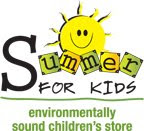
BPA
(Bisphenol A)
BPA is a chemical found in polycarbonate plastics and the linings of food and beverage containers. It leeches into the food and beverages it comes into contact with, and is linked to breast and prostate cancer, as well as problems with the neurological development of fetuses, and babies. BPA leaching is greater in polycarbonate that is scratched, cloudy or exhibits other signs of wear. BPA leaching is also accelerated by heat. Hot and fatty foods or liquids may dissolve traces of BPA. It makes sense to AVOID BPA. Plastic labeled with #7 is polycarbonate (which leaches BPA).
PVC
(Polyvinyl Chloride)
Detection of chlorine in a toy component indicates the likely use of PVC (polyvinyl chloride) or vinyl, a widely used type of plastic that is of concern to the environment and public health during all phases of its life cycle.
Because PVC is an inherently brittle material, it requires additives to make it flexible and to impart other properties. Another group of additives commonly found in PVC products are phthalates. Phthalates are used in many plastics, especially PVC products, as a softening agent to make the plastic flexible. Over 90% of all phthalates are used in PVC products.
Phthalates
Phthalates are a group of chemicals, some of which have endocrine-disrupting properties, meaning that they can disturb normal hormonal processes, often at low levels of exposure. (IEPA 2000).Exposure to phthalates is linked to birth defects of the genitals and altered levels of reproductive hormones in baby boys.
Plastic provides a good amount of affordable convenience. Some petroleum-based plastics leach harmful chemical into foods and drinks, especially when plastic comes in contact with oily or fatty foods, during heating and micro waving, as a result of harsh cleaners, and when exposed to excessive moisture.
Choose smart and safe plastics and avoid putting them in the microwave (where they can release dangerous chemicals when heated) or the dishwasher (where they can degrade in the heat and excessive moisture)


